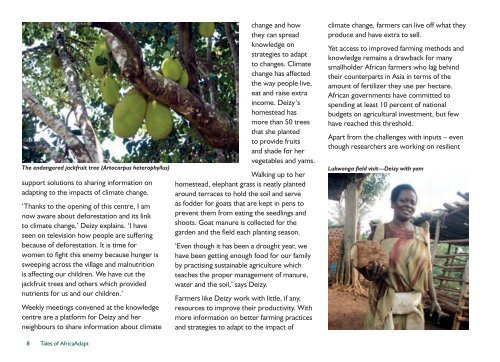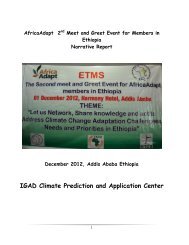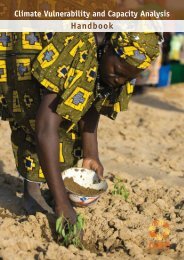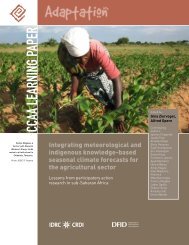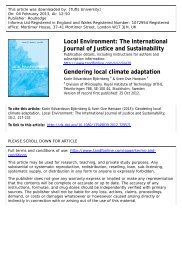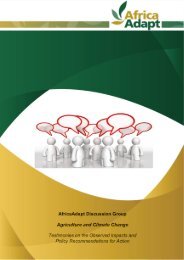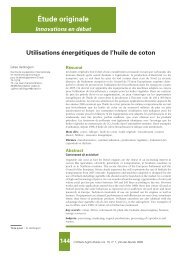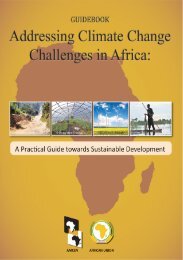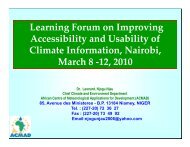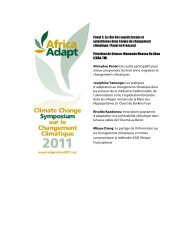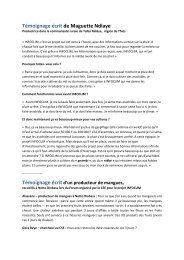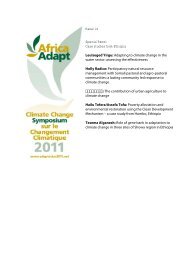Tales of AfricaAdapt
Tales of AfricaAdapt
Tales of AfricaAdapt
- No tags were found...
You also want an ePaper? Increase the reach of your titles
YUMPU automatically turns print PDFs into web optimized ePapers that Google loves.
The endangered jackfruit tree (Artocarpus heterophyllus)support solutions to sharing information onadapting to the impacts <strong>of</strong> climate change.‘Thanks to the opening <strong>of</strong> this centre, I amnow aware about deforestation and its linkto climate change,’ Deizy explains. ‘I haveseen on television how people are sufferingbecause <strong>of</strong> deforestation. It is time forwomen to fight this enemy because hunger issweeping across the village and malnutritionis affecting our children. We have cut thejackfruit trees and others which providednutrients for us and our children.’Weekly meetings convened at the knowledgecentre are a platform for Deizy and herneighbours to share information about climate8 <strong>Tales</strong> <strong>of</strong> <strong>AfricaAdapt</strong>change and howthey can spreadknowledge onstrategies to adaptto changes. Climatechange has affectedthe way people live,eat and raise extraincome. Deizy’shomestead hasmore than 50 treesthat she plantedto provide fruitsand shade for hervegetables and yams.Walking up to herhomestead, elephant grass is neatly plantedaround terraces to hold the soil and serveas fodder for goats that are kept in pens toprevent them from eating the seedlings andshoots. Goat manure is collected for thegarden and the field each planting season.‘Even though it has been a drought year, wehave been getting enough food for our familyby practising sustainable agriculture whichteaches the proper management <strong>of</strong> manure,water and the soil,’ says Deizy.Farmers like Deizy work with little, if any,resources to improve their productivity. Withmore information on better farming practicesand strategies to adapt to the impact <strong>of</strong>climate change, farmers can live <strong>of</strong>f what theyproduce and have extra to sell.Yet access to improved farming methods andknowledge remains a drawback for manysmallholder African farmers who lag behindtheir counterparts in Asia in terms <strong>of</strong> theamount <strong>of</strong> fertilizer they use per hectare.African governments have committed tospending at least 10 percent <strong>of</strong> nationalbudgets on agricultural investment, but fewhave reached this threshold.Apart from the challenges with inputs – eventhough researchers are working on resilientLukwanga field visit—Deizy with yam


